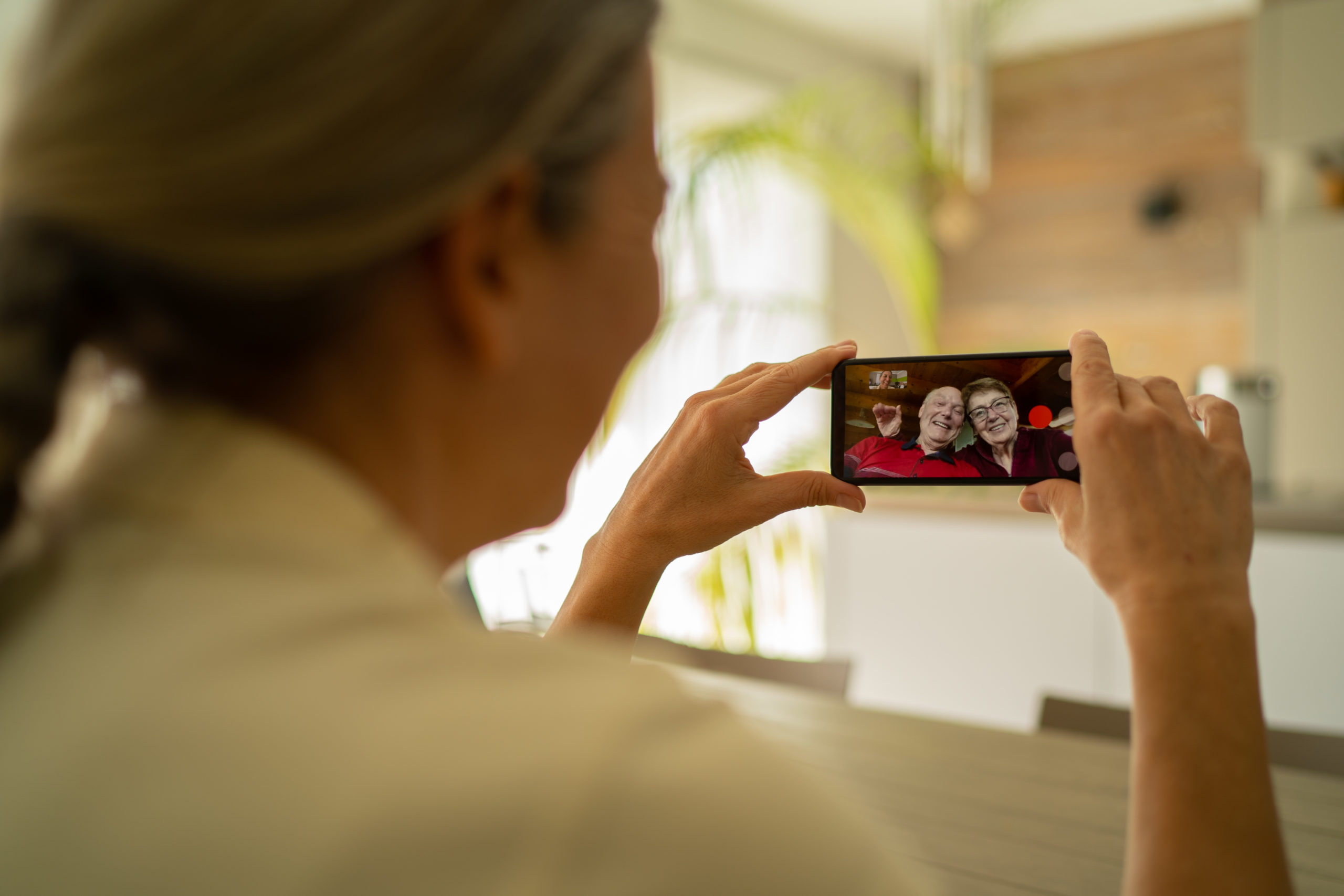9 Min Read
Social Distancing & Coronavirus: How to Protect Seniors

Through the end of April, the Centers for Disease Control and Prevention (CDC) have urged Americans, especially seniors, to stay home as often as possible and avoid groups of more than 5 people. Because the coronavirus (COVID-19) is transmitted through respiratory droplets passed between people in close contact, all crowded places like schools and shopping centers have closed down temporarily. And senior living communities like Grand Oaks have restricted all visitors to slow the spread of the virus.
Social distancing is deliberately increasing the physical space between people to avoid spreading illness. Staying at least 6 feet away from other people and not gathering in large groups lessens your chances of catching COVID-19.
The key to social distancing is to keep hospitals from becoming overwhelmed by the number of people sick with COVID-19. Maybe you’ve heard the term “flattening the curve.” This refers to using protective practices, like social distancing, to slow the rate of infection so hospitals have enough room, supplies, personal protective equipment, and healthcare providers for all the patients who need immediate care.
Seniors and those with underlying health conditions are the most vulnerable populations for COVID-19—they are at the highest risk for severe illness from the disease. That’s why health experts encourage seniors to stay home as often as possible and to stay away from other people. They should also continue to wash their hands often, wipe down all surfaces, and avoid touching their faces.
How to Social Distance If You’re Caring for a Senior Loved One
Caring for a loved one during this pandemic brings several challenges, especially given the new social distancing guidelines. If you’re navigating social distancing while living with and caring for a senior loved one, consider these best practices.
- Continue to focus on daily, safe hygiene. Remind seniors to wash their hands constantly.
- Being joined at the hip can cause most people discomfort. With this round-the-clock, enforced time together, try not to beat yourself up for feeling irritable at times, but don’t take it out on your loved one either.
- Create areas of separation, when you need them. Take 15 minutes and go to another room or step outside to clear your mind. Read a book, listen to music you enjoy, or meditate—whatever you need to carve out time and space that’s all yours.
- Find moments of mutual meaning and happiness. Play an old family movie or music you’ve always enjoyed together. Look through family photo albums or make a favorite family recipe together.
- Plan for changes in caregiving—think about who can step in to care for your loved one if you become ill and anticipate less help and support with adult day care programs and other health services shut down.
- Ask for help if you need it. Perhaps another family member or friend can pick up a medication refill or pick up some toilet paper while they’re at the grocery store.
- If your loved one has Alzheimer’s disease or other forms of memory loss, talk to your loved one about the pandemic in relatable terms they can understand.
- Stay calm and reassuring. Your loved one may feel the added stress and weight of the situation, too.
- Don’t forget to practice self-care. Pay attention to your own level of stress, stay present by engaging in activities with the person you’re caring for, stay away from social media if you feel anxious, and keep news to a minimum.
- Rely on technology—telephone, email, texting, video chatting, and social media—to talk to other friends and family members. Maintain your lifelines and stay connected even when you’re social distancing.
How to Cope with Social Distancing If You Can’t Visit Your Senior Loved One
We know it can be discouraging if you’re unable to visit a loved one at their assisted living community as you would regularly. Here are a few ideas for staying present and supportive with your senior loved one, even from a distance.
- Identify a staff member you have a strong relationship with and ask them to be your main point of contact to see and speak to your loved one.
- Find creative ways to engage your loved one with technology—like FaceTime video chats, social media, or games that keep your loved one connected. Consider regular check-ins and video chats.
- Get creative with your interactions, too. If your loved one is celebrating a milestone anniversary or birthday, or you just want to surprise them, make signs and visit them from a safe distance at their assisted living community. Talk to staff about best practices for safety, too.
- Encourage them to watch or read something positive, rather than reading the news, so that you can watch it together.
- Continue to practice self-care. Even if you’re unable to visit and care for your loved one now, you’ll need to be in a good place, both emotionally and physically, when social distancing restrictions are lifted and you return to your daily routine.
- Don’t be negative. COVID-19 statistics can be scary for seniors. Instead, talk to your loved ones about the future and plans together. Maybe you’re excited to enjoy the warm weather together soon or try a new recipe. We all need hope in times like these, so don’t forget to pass it along to the older adults in your life.
Grand Oaks understands this is a difficult time, and we appreciate your cooperation as we work to keep everyone—our residents, their families, and our staff—safe and healthy. To learn more about our response to COVID-19, visit our website.

0 Comments